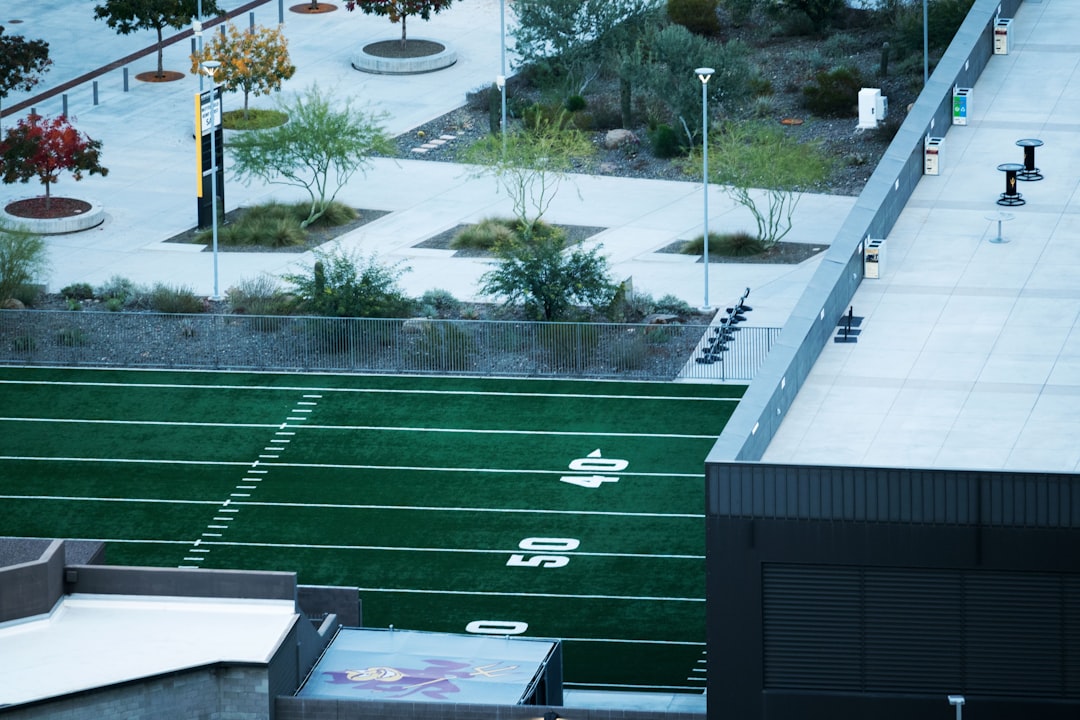This article aims to help English learners expand their travel vocabulary for the IELTS exam, with a particular focus on tourism-related terms. It provides practical examples and context, helping readers to understand and use these terms correctly.
Table of Contents
IELTS Travel Vocabulary: An In-depth Guide
Key Takeaways
- Understanding and utilizing tourism vocabulary plays a significant role in enhancing a candidate’s performance in the IELTS exam, particularly in the speaking and writing sections.
- A wide range of synonyms for the word ‘tourism’ can be used to diversify your language and improve your IELTS score.
- Familiarity with the language and vocabulary used to discuss transportation and tickets is crucial for describing various travel scenarios in the IELTS exam.
- Practical examples and context are key to understanding how to use tourism vocabulary effectively in real-life situations.
- Practice exercises are an invaluable tool for testing your understanding and application of the travel vocabulary discussed in the article.
In our everyday life, travel and tourism are words we hear often. But, what are, you might ask, the specific words related to these topics that you need to know for the IELTS exam? You’ve come to the right place for answers. This article is a treasure trove of must-know IELTS travel vocabulary. We’re going to talk about tourism, transportation, tickets, and a lot more. And yes, we’ve got you covered with a bunch of IELTS synonyms for tourism. So, sit tight and buckle up for a fun and informative journey through the world of travel vocabulary. It’s a ride you won’t want to miss.
All Aboard: Understanding Train Travel
If you’re a learner of English, especially if you’re preparing for the IELTS, you might find yourself a bit confused about train travel vocabulary. But don’t worry, this section is here to guide you through it!
First off, we have the term ‘train station’. This is the place where you go to catch your train. Easy enough, right? Now, when you’re at the train station, you might hear the word ‘platform’. This is the specific area where you wait for your train.
Then we have the ‘ticket office’. This is where, you guessed it, you buy your tickets! Sometimes, like in many major cities, you might use a ‘ticket machine’ instead. This is a machine that lets you buy your ticket. It’s pretty handy if there’s a long line at the ticket office.
Now, let’s say you’re on the train and you hear the word ‘carriage’. This is simply another word for a train car. In the U.K., they also use the word ‘coach’. Then there’s the ‘conductor’. This is the person who checks your ticket on the train.
Finally, when the train arrives at its final destination, you’ll hear the word ‘terminus’. This is the end of the line for the train.
So, there you have it. That’s a quick rundown of some basic train travel vocabulary. It might seem a bit confusing at first, but with a bit of practice, you’ll be navigating the train system like a pro in no time.
And hey, next time you’re at the train station, why not strike up a conversation with a fellow traveler? It’s a great way to practice your English and maybe even pick up some new vocabulary words. Just remember, it’s all part of the journey!
Making Sense of Tourism Synonyms in IELTS
Okay, here we are, right in the middle of exploring IELTS travel vocabulary. And guess what? We’re now going to look at tourism synonyms. Sounds interesting, right? So let’s get the ball rolling.
When we talk about tourism, an array of words comes to mind such as sightseeing, holidaying, adventuring, and so much more. In IELTS, vocabulary plays a big role so it’s important to know how to use these words in the right context.
For instance, instead of always using the word ‘tourism’, you could use ‘sightseeing’ when talking about visiting interesting places. Or say ‘holidaying’ when referring to someone taking a break from work to travel. These words not only add variety to your language, but they also make your conversations sound more engaging and natural.
And the best part? You can apply this trick to other topics too. So, keep learning, keep practicing, and you’ll see your language skills improving in no time. It’s as simple as that.
The Fascinating World of Tourism Synonyms in IELTS
You know, it’s quite interesting how language, specifically English, has so many ways to describe one thing. And, well, this is especially true when we’re talking about the field of tourism. For those studying for the IELTS, mastering these synonyms isn’t just good to know, but, kind of, a must.
You see, when it comes to the IELTS, having a broad vocabulary can make a big difference. An amazing fact to consider is that vocabulary counts for 25% of your total score in the Writing and Speaking sections. So, yeah, it’s kind of a big deal.
When it comes to tourism, we don’t just have ‘tourism’. There’s ‘travel’, ‘sightseeing’, ‘excursion’ and so many more. Each of these words, although similar, has its own unique nuances and uses.
For instance, let’s take the word ‘excursion’. It’s a trip or outing, especially for pleasure. However, it’s often used to refer to a short journey as part of a bigger trip. So while you might travel to France for a holiday, you might take an excursion to the Louvre while you’re there. Neat, isn’t it?
And then, we have ‘sightseeing’, a word that refers to the act of visiting and seeing places and attractions. Usually, when you’re sightseeing, you’re not just there for a day, you might spend some time exploring the area.
The world of synonyms in the IELTS can seem daunting, but it’s really fascinating once you get the hang of it. So, don’t be afraid to dive in and expand your vocabulary. It’s not only going to help you ace the IELTS, but it’ll also make your English more vibrant and interesting.
Wrapping it Up: Mastering IELTS Travel Vocabulary
We’ve taken a fantastic journey through the world of IELTS travel vocabulary, haven’t we? From uncovering tourism synonyms for IELTS to exploring the terminology related to transportation and tickets, it’s been a ride full of learning and, I hope, fun.
Here’s a quick recap, just to refresh our memory a bit. We kicked things off with a deep dive into tourism synonyms for the IELTS exam. We found out that an impressive vocabulary can really make a difference in our scores, right? We then moved on to the transportation sector, learning all the essential words related to various modes of travel. Pretty cool, huh?
Remember the part about tickets? We learned all about booking, reservations, and more. We also touched upon useful phrases and sentences that could come in handy in real-life situations, not just in the exam.
The journey doesn’t end here, though. To truly master the IELTS travel vocabulary, we need to keep practising and using these words in our everyday communication. So, how about we start using these new words in our daily conversations? Sounds like a plan, doesn’t it?
So, that’s it for our little adventure. But you know what they say, learning is a never-ending journey. So, let’s keep exploring and discovering new territories in the English language. After all, language is the passport to the world, isn’t it?
FAQ
Why is Tourism Vocabulary Important for IELTS?
Tourism vocabulary plays a significant role in the IELTS exam, especially in the speaking and writing sections. It can help the candidate to express their ideas more clearly and accurately in different contexts related to travel and tourism. It also allows the examiner to assess the candidate’s ability to use a variety of vocabulary, which is one of the key assessment criteria in the IELTS exam.
What are some Common Tourism Synonyms in IELTS?
Some common synonyms for ‘tourism’ that can be used in the IELTS exam include ‘travel’, ‘holidaying’, ‘sightseeing’, ‘vacationing’, ‘exploring’, ‘globetrotting’, and ‘journeying’. These synonyms can be used to add variety to your language and to demonstrate your range of vocabulary in the exam. For example, instead of saying ‘I enjoy tourism’, you could say ‘I enjoy exploring different countries’.
Transportation and Tickets: Essential IELTS Vocabulary. What does this entail?
This refers to the specific language and vocabulary used to discuss transportation and tickets in the context of travel and tourism. This could include terms related to different types of transport (e.g., ‘bus’, ‘plane’, ‘train’), ticket types (e.g., ‘one-way’, ‘return’, ‘first-class’), and other related terms (e.g., ‘departure’, ‘arrival’, ‘schedule’).
How to Use Tourism Vocabulary in Context?
Using tourism vocabulary in context means applying these terms in real-life situations or examples. For instance, instead of simply memorizing the word ‘itinerary’, you could practice using it in a sentence like ‘We planned our itinerary carefully to visit all the major tourist attractions’. This helps you to understand how to use these terms correctly and naturally in your speaking and writing.
Are there any Practice Exercises for IELTS Travel Vocabulary?
Yes, the article includes practice exercises to help you test your understanding of the travel vocabulary. These exercises might include fill-in-the-blanks, matching exercises, or writing short essays using the vocabulary. It’s a great way to reinforce what you’ve learned and to prepare for the IELTS exam.
Can I use this guide for other English exams as well?
Absolutely! While this guide is specifically designed for the IELTS exam, the vocabulary and concepts discussed are relevant for any English language exam that assesses speaking and writing skills. The ability to express oneself clearly and accurately about various topics, including travel and tourism, is a valuable skill in any English exam.
How can I effectively remember all these vocabularies?
The best way to remember vocabulary is through regular practice and use. Try to incorporate the new words into your daily language use, both in speaking and writing. You can also try techniques such as flashcards, vocabulary notebooks, and online language learning apps. Additionally, repetition and review are key to reinforcing your memory.





















No comments yet.